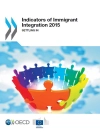How do firms from emerging economies strive for the internationalization of their business? This comprehensive two-volume collection tackles this question by taking a closer look at underexplored issues, including bottom of the pyramid (Bo P) business models, value creation and co-creation, employee commitment and the ‘born global’ concept. Volume II examines internationalization from the perspective of European and African firms. It covers an array of pressing issues within Europe including responsible business practices between SMEs from developed and emerging countries, and the impact of psychic distance, while coverage of African firms places a spotlight on under-researched countries such as Tanzania, Zambia and Nigeria. Providing further examination of emerging markets and internationalization processes, this second volume offers a comprehensive guide for all researchers of international business.
Table of Content
1. International Business and Emerging Economy Firms: The Contexts of Central and Eastern Europe and Africa; Svetla T. Marinova, Jorma A. Larimo, Tiina Leposky and Marin A. Marinov. Part I. European Perspectives on the Internationalization of Emerging Economy Firms.- 2. The Role of Responsible Business Practices in International Business Relationships between SMEs from Developed and Emerging Economies; Maria Uzhegova, Lasse Torkkeli and Maria Ivanova-Gongne.- 3. West Meets East: Lessons Learned from Misunderstandings during Market Expansion in Russia; Vincent Montenero.- 4. Job Creation of Exporters and Non-exporters: Evidence from Estonia; Tiia Vissak and Jaan Masso.- 5. Determinants of Foreign Direct Investment in Serbia: Is the Concept of Distance Relevant?; Natasa Grujic and Dimitrios Kyrkilis.- 6. An Acceptance Model for the Adoption of Smart Glasses Technology by Healthcare Professionals; Dilek Özdemir-Güngör, Müge Göken, Nuri Basoglu, Amir Shaygan, Marina Dabić and Tugrul U. Daim.- Part II. African Perspectives on the Internationalization of Emerging Economy Firms.- 7. Empirical Evidence of an Inclusive Business Model: Lessons Learned from Aquaculture in Tanzania; Anders Anker-Ladefoged, Thomas Varberg and Daojuan Wang.- 8. Internationalizing SMEs and Social Networks in the Global South; Jackson Musona, Agnes Asemokha, Lasse Torkkeli and Pasi Syrjä.- 9.The Nexus of Knowledge Sharing and Innovations in the Informal Sector: The Case of Otigba Hardware Cluster in Nigeria; Emmanuel M. Ogunjemilua, Billy A. Oluwale, Oluseye O. Jegede and Blessing F. Ajao.
About the author
Jorma A. Larimo is Professor of International Marketing at the Faculty of Business Studies, University of Vaasa, Finland. His research involves the internationalization of SMEs, acquisition and international joint venture strategies and performance, as well as market entry and marketing strategies in the context of Central and Eastern European countries.
Marin A. Marinov is Professor of International Business at Aalborg University, Denmark. His research interests include the phenomenon of internationalization, multinational firms and business development in emerging economies, and business policy and strategy. Having consulted for numerous multinational firms and national governments worldwide, Marin is joint Series Editor of Palgrave Studies of Internationalization in Emerging Markets.
Svetla T. Marinova is Professor of International Business and International Marketing at Aalborg University, Denmark. Her research revolves around internationalization and the role of institutions, as well as strategy of multinational firms from emerging economies. Having published over 80 papers in scholarly journals and eight books, Svetla is joint Series Editor of Palgrave Studies of Internationalization in Emerging Markets.
Tiina Leposky is Assistant Professor at the University of Vaasa, Finland, where she researches value creation in new service development and digital business, as well as agile product development and business models in the context of Industrial Internet. Tiina has worked in numerous multinational companies in Europe focusing on making businesses more service and solutions oriented.












